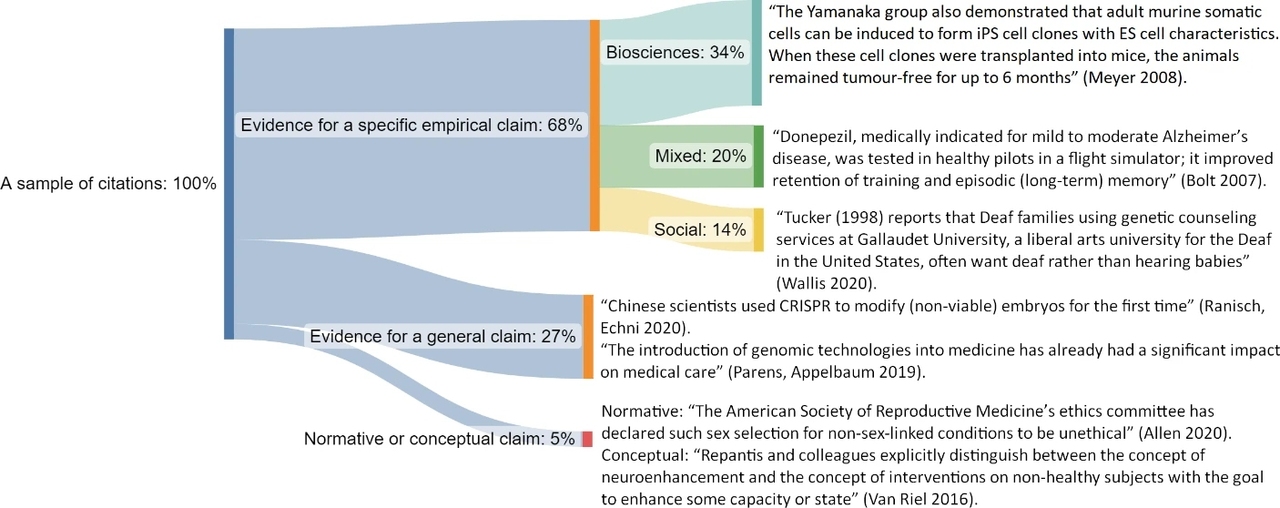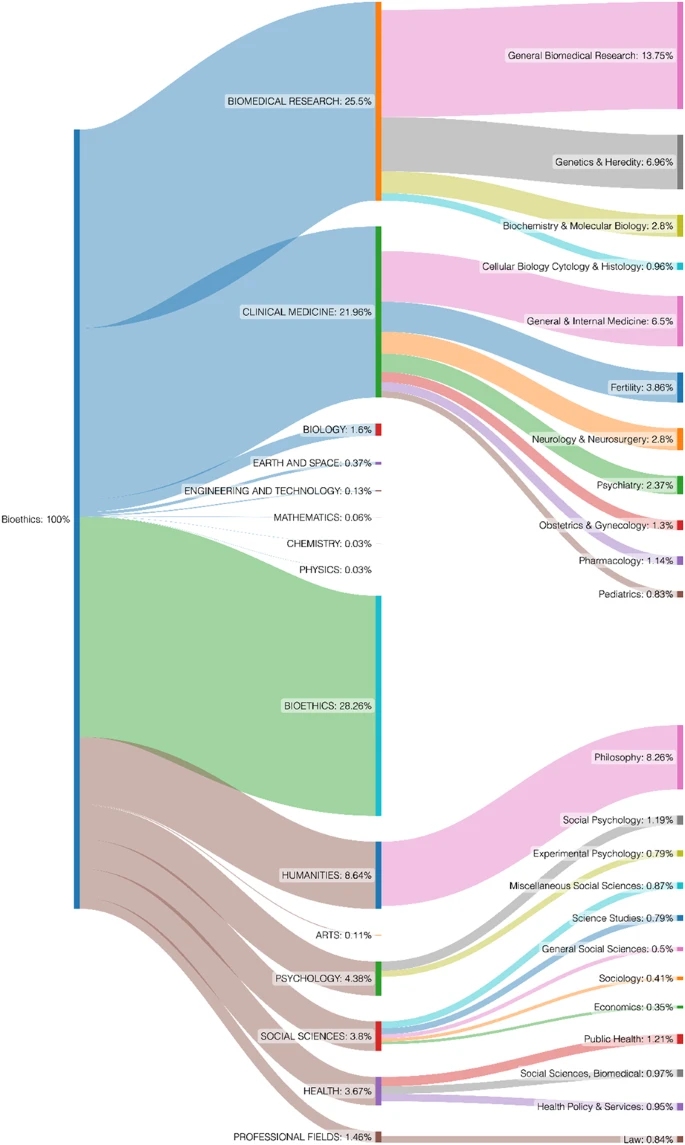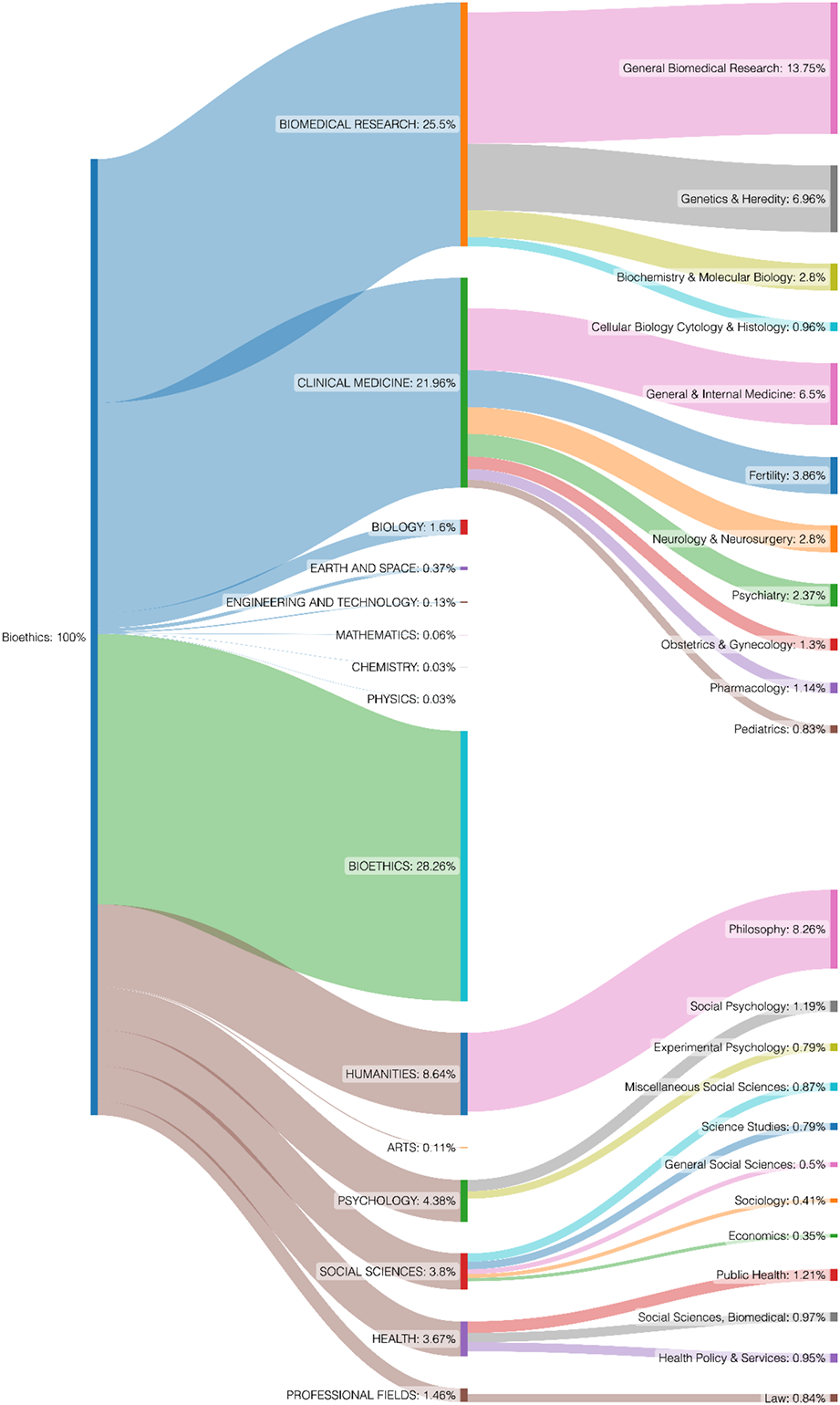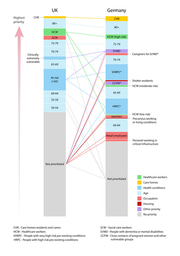Do Human Enhancement Debates Follow Science?
Published in Philosophy & Religion

Human enhancement is a hot topic in philosophy and bioethics, encompassing discussions on genetic modification, cognitive enhancement, and physical augmentation. In our earlier study of nearly 20,000 articles published in seven leading bioethics journals since 1971, we discovered that debates on human enhancement have exploded in popularity. Back in the late 1970s and 1980s, the topic was barely noticeable, but by the 2010s, it had become one of the most prominent.
But how much do bioethical discussions on human enhancement actually rely on real scientific advancements? That’s what we set out to explore in our newest study "Discussions on Human Enhancement Meet Science: A Quantitative Analysis," recently published in Science and Engineering Ethics.
Using unsupervised machine-learning methods, we delineated a corpus of over 1,360 scholarly articles published in these seven main bioethics journals on human enhancement. Then, we examined 11,000 references cited in these papers. Our goal was to determine whether bioethics meaningfully engages with the latest scientific advancements. What we uncovered was surprising: much of the bioethical discourse on human enhancement does not necessarily reflect cutting-edge scientific research. (We explain our method in detail in our previous study, “Half a Century of Bioethics and Philosophy of Medicine. A Topic-Modeling Study” published Bioethics)
What We Found
A key aim of bioethics as an academic discipline is to provide guidance – to researchers, policymakers, and the broader public – on current challenges in biotechnology and biomedical research. Thus, we posed a simple yet crucial question: To what extent do bioethicists debating human enhancement rely on real, up-to-date scientific research?
To answer this, we examined the academic backbone of these discussions – analyzing thematic trends, tracking citation patterns, and closely inspecting citation contexts to assess how responsive bioethical arguments are to contemporary bioscientific discoveries.
By taking both a distant and close look at citation flows, we aimed to trace the most influential scientific works in human enhancement debates and reconstruct the flow of ideas from bioscience to bioethics.
At first glance, the numbers seemed reassuring: nearly half of all citations in human enhancement debates referenced journals in the natural sciences and engineering (Fig. 1). This initially suggested a strong scientific foundation for bioethical discussions on the topic.
But as we dug deeper, still using quantitative analysis, a less encouraging picture emerged.
The “Science-Fictional” Mindset
Despite frequent references to scientific literature, our study found that many bioethical discussions on human enhancement fail to engage seriously with the latest and most significant research. Instead, they often rely on speculative scenarios, futuristic possibilities, and sweeping moral claims devised by bioethicists themselves – a pattern we termed a "science-fictional” mindset because it draws on images, metaphors, and storylines from science fiction literature.
For example, such discussions may encourage readers to imagine a future where parents can walk into a clinic and, with a simple genetic procedure, design their child to have an IQ of 200, Olympic-level athleticism, and an innate moral perfection. Bioethical debates frequently dwell on these possibilities, raising concerns about social inequality, loss of human authenticity, and the moral implications of “playing God.”
However, while intellectually stimulating, these discussions often ignore the current scientific reality – namely, that intelligence, athleticism, and moral behavior are influenced by thousands of genes interacting with complex environmental factors. As a result, such traits remain far beyond the reach of present-day genetic engineering.
Of course, we do not deny that speculative discussions have value. Forecasting future trends and imagining the consequences of as-yet-uninvented technologies can help anticipate potential problems and inform regulatory frameworks. In some cases, they may even inspire new directions of scientific research. However, when bioethical debates consistently prioritize extreme hypotheticals over empirical reality, they risk distorting public and policy discussions about the ethical and regulatory challenges we actually face today.
From Distant to Close Reading
The most cited empirical studies in our dataset was Liang et al. (2015), which reported the first CRISPR/Cas9 experiments on (non-viable) human embryos. However, despite its groundbreaking nature, at least from an ethical perspective, this paper was cited only 18 times within our corpus—surprisingly little for such an important study. Moreover, many of these citations merely acknowledged the paper’s existence without engaging with profound ethical, normative, or regulatory implications of this experiment.
By systematically analyzing two samples of references from our subcorpus to journals in the natural sciences and engineering, as well as their citation contexts, we discovered that even when empirical studies were referenced, they were often not used to discuss specific scientific discoveries. Instead, they were typically cited to justify broad ethical claims, conceptual distinctions, or normative arguments that were not necessarily rooted in the cited research.
Our findings confirm that simply citing a scientific study does not necessarily indicate genuine intellectual engagement with its content. Researchers cite for a variety of reasons: to strengthen rhetorical arguments, to align with particular academic networks, or simply to signal awareness of key literature.
Ultimately, our study suggests that while many bioethical papers make for thought-provoking discussions—sometimes even great movie plots—they can also mislead policymakers and the public about the actual ethical and regulatory challenges at stake. When bioethical debates prioritize imaginative "what if" scenarios over concrete scientific developments, they risk becoming disconnected from the technological realities we are actually facing.

Figure 1 shows the citation flow (10,946 references) from 1,360 scholarly articles on human enhancement to documents published in journals across different scientific fields. Source: https://doi.org/10.1007/s11948-025-00531-6.
Acknowledgments
This research was supported by the European Research Council (ERC) under the European Union’s Horizon 2020 research and innovation program (grant agreement 805498).
References
Bystranowski, P., Dranseika, V., & Żuradzki, T. (2022). Half a century of bioethics and philosophy of medicine: A topic-modeling study. Bioethics, 36, 902–925. https://doi.org/10.1111/bioe.13087
Żuradzki, T., Bystranowski, P. & Dranseika, V. (2025). Discussions on Human Enhancement Meet Science: A Quantitative Analysis. Science and Engineering Ethics, 31, 6. https://doi.org/10.1007/s11948-025-00531-6
Follow the Topic
-
Science and Engineering Ethics

This journal is an international multidisciplinary journal dedicated to exploring ethical issues associated with science and engineering, covering professional education, research and practice as well as the effects of technological innovations and research findings on society.


Please sign in or register for FREE
If you are a registered user on Research Communities by Springer Nature, please sign in